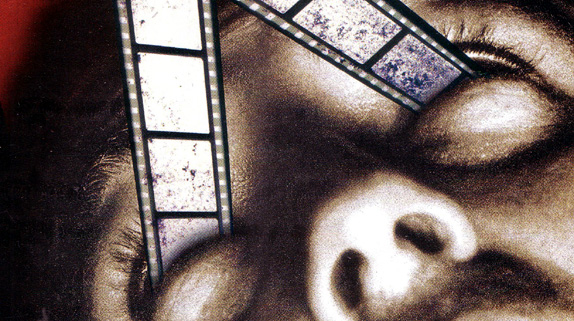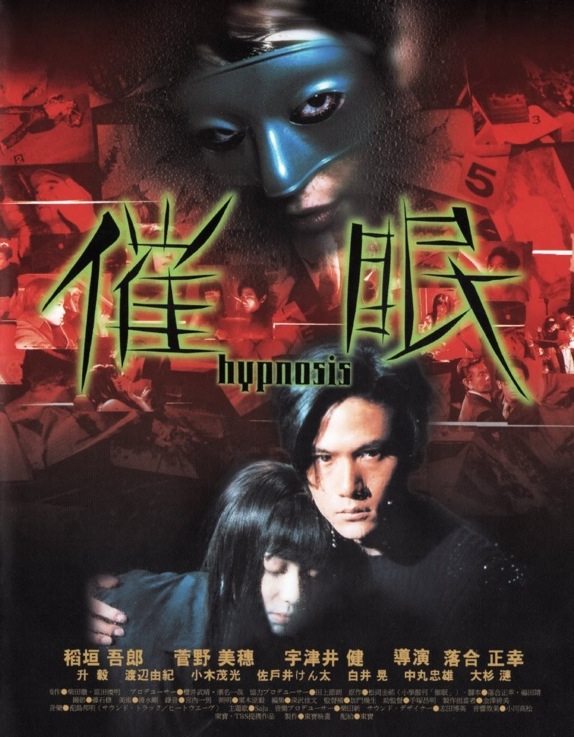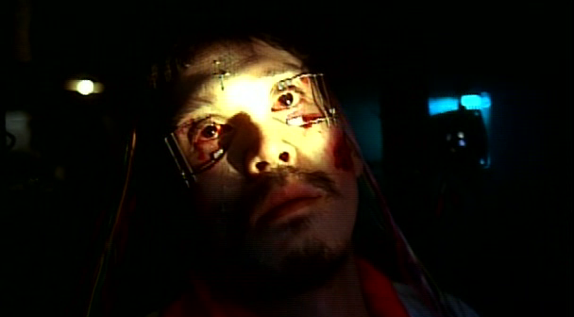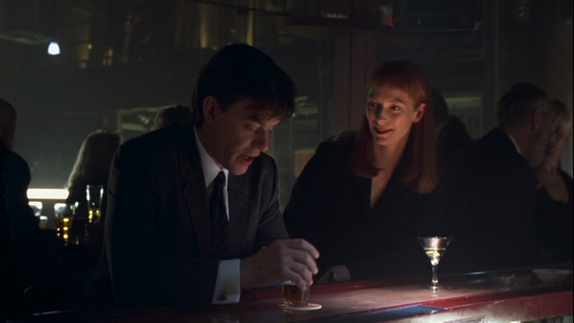Strange Encounters Part 3

To conclude Strange Encounters, the next three films will be plucked from the non-retro side of the ISFF…
The first signs of the festival’s gradual move away from being an all-trash haven can probably be traced back to the inclusion of Masayuki Ochiai’s Hypnosis in 2000, where the programming still featured titles like Zontar, Thing from Venus and Night of the Lepus. This would be the last year the ISFF would sport the distinctive black-and-red colour schemes of its programme guide, and more significantly, its “Incredibly Strange” name. Hypnosis marked the fest’s growing awareness of certain genre trends in world cinema, which in this case, was the Japanese horror rage spawned by Hideo Nakata’s Ring in ‘98.
Seeing a newish J-horror film on the big screen in those days was a massive, rare treat, and Hypnosis blew us all back to the wall with its Grand Guignol set-pieces – even in the lovably cruddy, now-long-gone Chinatown cinema on Victoria Street. There was an overriding sense that we were in the presence of something different, something new and vital we hadn’t seen in American horror films of that period (“…so boldly audacious it could well signal the birth of a brand new type of 21st century film”, the programme notes raved).
Unfortunately time hasn’t been too kind to this once-potentially trailblazing pic. Hypnosis looks much less unique today than it did 12 years ago. It’s not as creepy as I remembered it, the shocks and images blunted by a full decade of run-of-the-mill Ring clones flooding the scene. Also, rewatching it on DVD, it’s even more evident how flimsily plotted it all is; the film’s big twist is so frustratingly obvious after repeated viewings it almost seems impossible ANYONE would not have noticed it the first time round (my memory being a little foggy, it’s also not out of the question that I did). And the less said about the CG effects the better.
That said, it’s still kind of a hoot, its pulpy, stylish mishmash of police procedural, psychoanalysis and supernatural malarkey approximating what Kiyoshi Kurosawa’s Cure might look like if Brian De Palma had made it. The film wastes no time setting up the premise, immediately launching an irresistibly gruesome opening of three random suicides occurring across Tokyo: an athlete sprints so hard until her legs snap, an old man leaps out of a high rise on his wife’s birthday, a groom strangles himself to death with his tie. The following investigation, headed by veteran detective Sakurai (Ken Utsui) and budding psychoanalyst Saga (Goro Inagaki), leads to Jissoji (Takeshi Masu), a dodgy TV show hypnotist and Yuka (Miho Kanno), a mysterious girl with multiple personalities.
Ochiai’s definitely playing some of it tongue-firmly-in-cheek, and the dashes of humour help offset the ridiculousness of its plot – speaking of which, the confidence and guile in which he switches gears about two-thirds in is something other directors should take note of if they want to make genre movies that are narratively surprising and unpredictable. While there are a number of very cool sequences sprinkled throughout – including the concert hall centerpiece that smartly riffs on Hitchcock’s The Man Who Knew Too Much – the bit I was oddly drawn to during my recent viewing was the lengthy scene where Saga discovers Yuka’s other personality. That whole sequence has a drifting, fever-dreamy, neon-splashed atmosphere that isn’t like anything else in the movie and makes us feel like we’ve momentarily landed in Blade Runner territory.
Pair Hypnosis up with Anguish for a whack double feature, and drop me a line if you figure out what that cryptic ending means…
In the next few years, the Incredible Film Fest exhibited a strong focus on the “new wave” of Asian cinema – particularly those from Japan and Korea – bringing the thematically provocative, genre-bending works of directors such as Takashi Miike (Audition) and Kim Ki-duk (The Isle) to our shores. At the same time, it recognised the Europeans were similarly bugnuts and doing extreme things with their movies. Most notoriously, two French button-pushers, Baise Moi and Irreversible, brought the fest some free publicity courtesy of a group of self-appointed moral watchdogs known as the Society for the Promotion of Community Standards who, unsuccessfully, called for their banning.
Surprisingly, they didn’t have anything to say about Marina De Van’s exquisitely grisly In My Skin (IFF ‘03), a film built around long, lovely sequences of a woman mutilating herself and snacking on her arm as if her life depended on it. Van, a regular Francois Ozon collaborator, wrote, directed and starred in this arthouse Cronenberg-by-way-of-Bunuel shocker which ultimately unsettles because of how identifiable it all is. That’s not to say I am prone to self-harm or cannibalism, but that Van’s film is clearly aligned with the idea that the human urge – to eat, drink, smoke, etc. – can be an inexplicable force we all have to contend with.
As graphic as it sometimes gets, In My Skin is no exploitative splatter flick. Much of its squirmy effectiveness is derived from Van’s sensitivity to texture and tactility – close-ups of sticky bandages and stitches, blood stains seeping through pants – rather than outright gore. Wisely, Van doesn’t compromise her vision through logical reasoning of her character’s actions, opening up the film’s psychological component to a raft of possible interpretations: the pressure-cooker environment of her workplace, the cracks in her personal relationships, the drastic changes in her lifestyle, or maybe it’s simply sheer, primal ecstasy at work. Of course, with a film so surely crafted as this, the whys can altogether be abandoned: In My Skin is just as damn near-perfect a movie you can make about a woman who begins eating herself.
One of the things I miss about the IFF were the chances it took with the programming, allowing smaller, more obscure films a prominence it might have otherwise not have in the bigger NZFF. You get to see something like Robert Lepage’s Possible Worlds, a film that would probably never find its way to the current Incredibly Strange section. Not in any loud, obvious way “incredibly strange” (although not exactly conventional), it’s the most calm, reflective, Zen-like movie that’s ever played the ISFF, and maybe the most overtly romantic too.
The film starts off as a detective story, starring Tom McManus and Tilda Swinton as lovers in two intertwining, parallel stories somehow connected to a dead body with a missing brain. But John Mighton’s script, based on his play, is more concerned with heady questions probing the possibilities of our imagination to house universes and realities, making the film a more cerebral, philosophical cousin to those pre-millenial is-it-real-or-Memorex movies such as The Matrix, Open Your Eyes, Thirteenth Floor and eXistenZ. If you love “brain” movies (a la Donovan’s Brain) and dream logic narratives, track this gem down (Magna Pacific put out a DVD some years ago which I’m hesitant to recommend ‘cos it looks like mud and does a disservice to this gorgeous-looking movie).



















